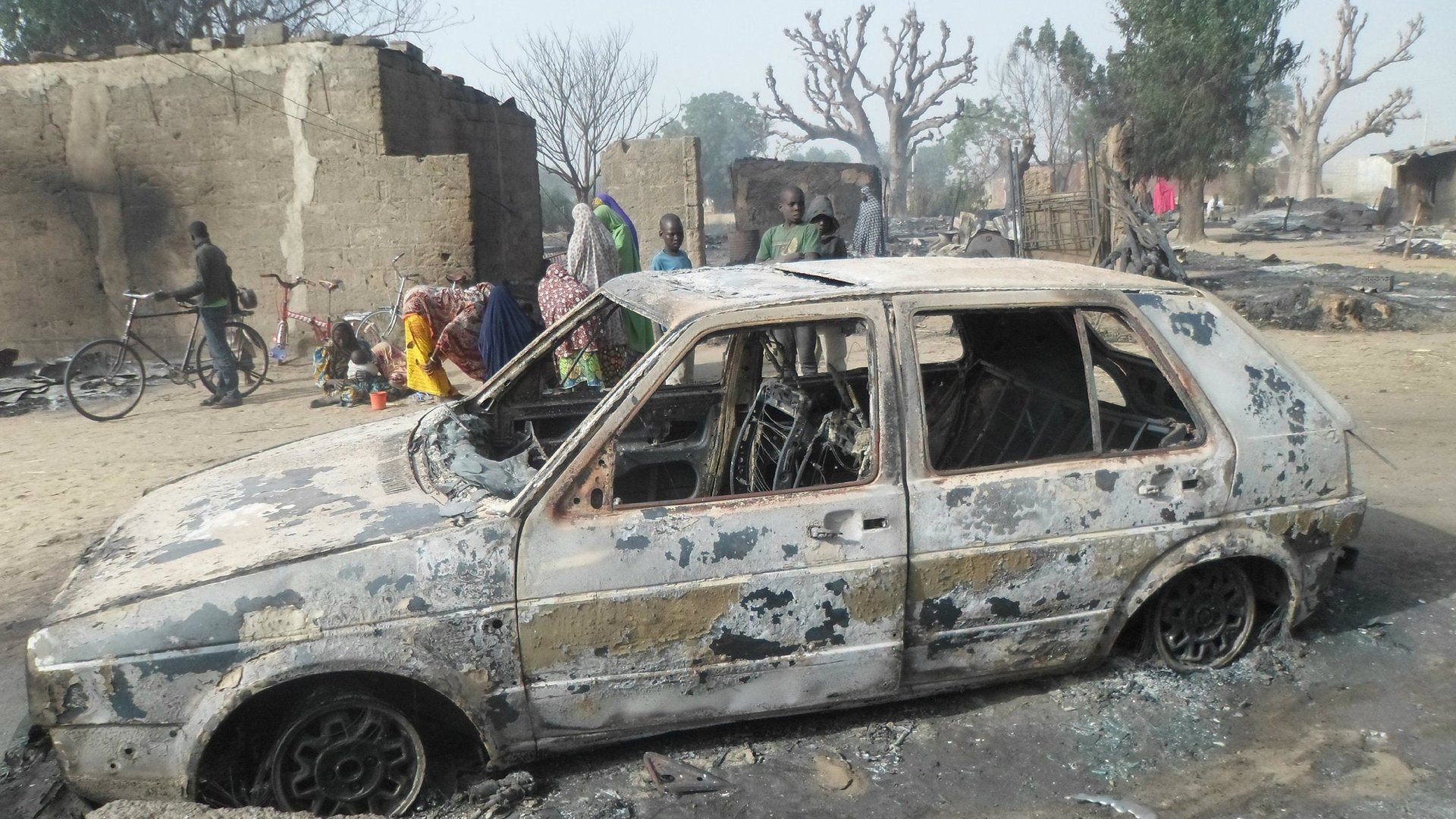Boko Haram’s latest attacks will dent Nigerians’ hopes Buhari can end the insurgency soon
On Dec. 24, Nigeria’s president Muhammadu Buhari told the world press that Boko Haram, the militant sect which has led an insurgency since 2009, had been ‘technically’ defeated. According to Buhari, Boko Haram, as an ‘organized fighting force’, could no longer carry out ‘articulated conventional attacks on centers of communication and populations’.


On Dec. 24, Nigeria’s president Muhammadu Buhari told the world press that Boko Haram, the militant sect which has led an insurgency since 2009, had been ‘technically’ defeated. According to Buhari, Boko Haram, as an ‘organized fighting force’, could no longer carry out ‘articulated conventional attacks on centers of communication and populations’.
In part, he was right. The sect have been forced to resort soft target attacks as Nigeria’s military have made gains in the fight against insurgency over the previous six months. But the danger with declaring any kind of victory is that soft target attacks can be just as deadly, as Buhari is now finding out. Since declaring a technical victory, Boko Haram has killed over 200 people. The group’s latest attack came yesterday (Jan. 31) as the sect hit villages near Maiduguri, killing more than 80 people.
There can be no question that since Buhari has taken office the Nigerian military have made gains in the fight against Boko Haram. The top brass of the military was replaced and a damning $2 billion arms procurement scandal was uncovered. On the front-line, the army recaptured several towns previously held by Boko Haram and also rescued scores of abducted women and children—but not including the Chibok girls, the subject of an international awareness campaign. But as images and stories of children burnt to death in one of the attacks in the last 24 hours start to circulate, Boko Haram’s continued attacks now make Buhari’s declaration seem not just premature, but also unwise.
The effect of Boko Haram’s attacks over the years have been devastating. The sect has killed over 20,000 people and forced a refugee crisis as more than two million people were forced from their homes, living in displacement camps which have also been subjects of attacks. With the frequent attacks rendering much of Nigeria’s north east near inhabitable, the sect’s activities have also forced more than a million children out of school in a region already well behind the rest of the country on literacy levels.
Now, with the sect resorting to guerilla attacks using teenage girls as suicide bombers, the army will have to step up its intelligence capacity and focus on intercepting these attacks. Much of Buhari’s appeal during the presidential elections last year came from his background as a decorated military officer as Nigerians hoped he, more than other candidates, would have a unique understanding of the Boko Haram threat.
But the sect’s lingering threat will have erased any hopes of an imminent end to the insurgency. Ryan Cummings, a security analyst, told Quartz in December that ending the insurgency was an ‘unlikely development’ at this stage. “There are many dynamics at play which makes it very difficult to assess when the insurgency will be truly be ended,” he said.